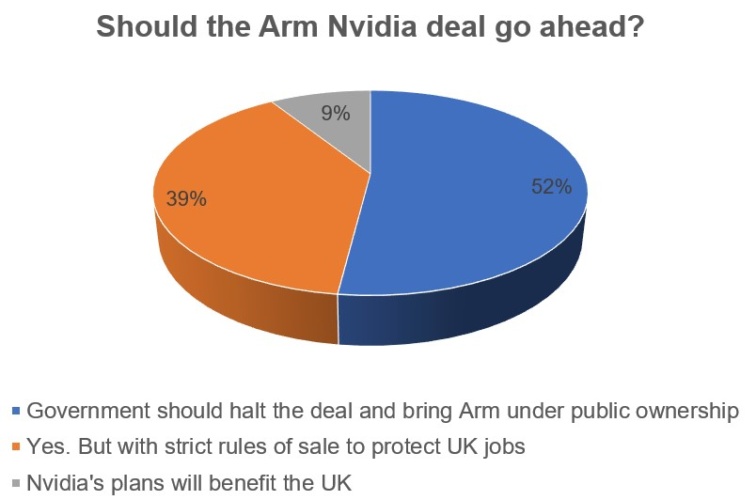
The news that UK-based tech giant ARM Holdings is to be sold by its current owner - Japan’s SoftBank Group - to US graphics chip giant Nvidia for $40bn has been described by the company’s founder as a disaster that threatens jobs and damages the UK’s ambitions to grow its tech centre.
The organisation - which was originally spun-out out of UK computer company Acorn in 1990 – is best known as the designer of the ubiquitous computer chips that are at the heart of most of the world’s leading smartphones.
It was sold to its current owner for $32bn four years ago - in a deal part-brokered by then Prime Minister Theresa May - which saw SoftBank agree to keep the HQ in the UK until at least September 2021.
In a statement, Nvidia chief executive Jensen Huang has pledged to honour the terms of this deal, to keep the company’s HQ in Cambridge and even to expand the site to build a “worldclass” AI research facility.
However, talking on BBC Radio Four’s Today program, Arm co-founder Hermann Hauser warned that any such pledges are meaningless unless they are made legally enforceable by the government, and that the deal - which will effectively mean that many of ARM’s clients become dependent on a competitor – threatens the firm’s business model.
There are also concerns over the implications of putting a company that is famed for its global reach under the ownership of US firm at a time when the US is engaged in a growing trade war with China.
Arm was once that rarest of things – a bona fide UK based global tech giant. Exactly the kind of organisation that the current UK government claims it would like to see more of. Sadly – whilst much of the expertise has remained in the UK - Arm has instead come to be seen as a classic example of the UK’s famed inability to tap into the economic potential of its most innovative technological advances.





Glasgow trial explores AR cues for autonomous road safety
They've ploughed into a few vulnerable road users in the past. Making that less likely will make it spectacularly easy to stop the traffic for...